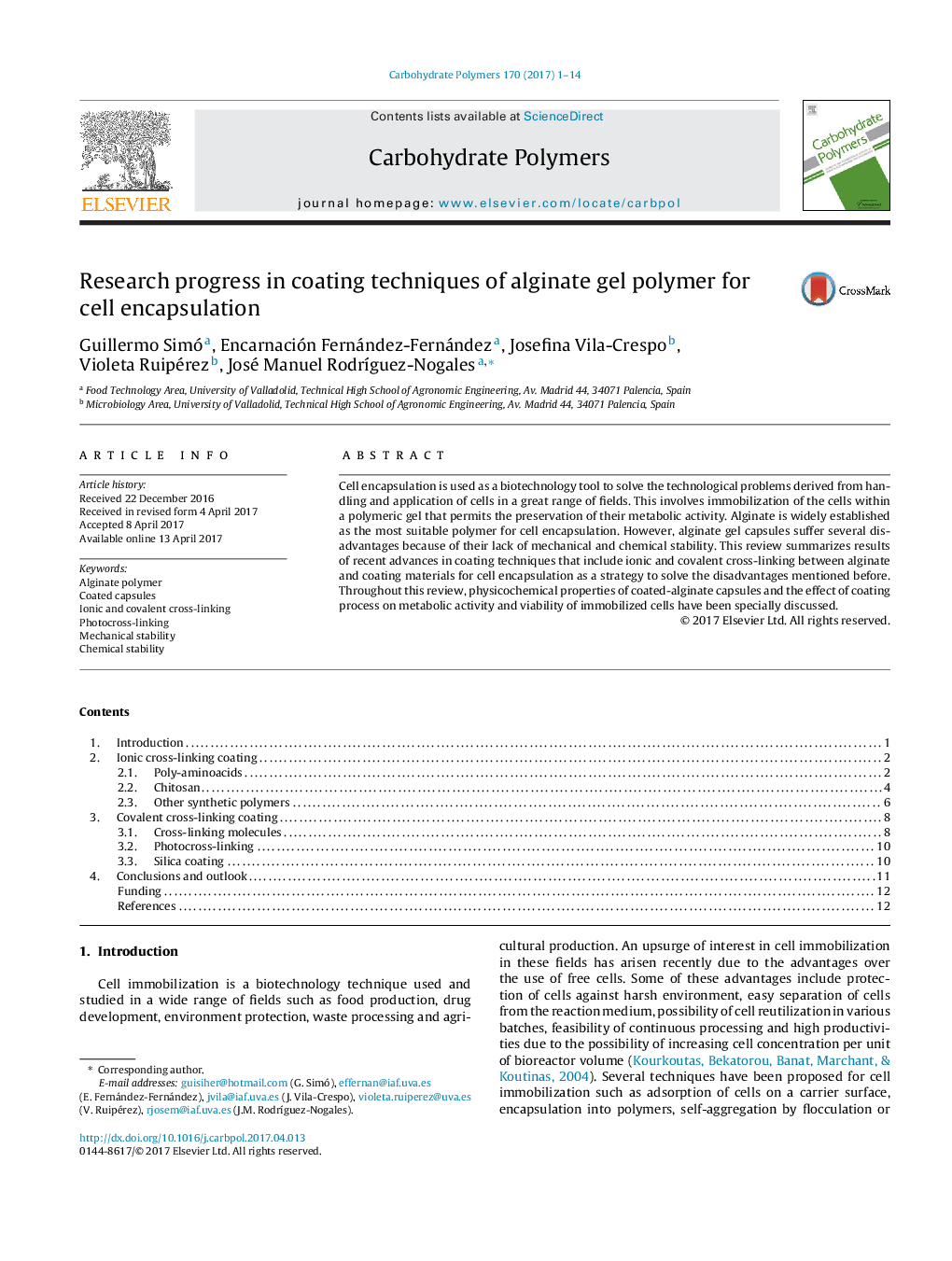| Article ID | Journal | Published Year | Pages | File Type |
|---|---|---|---|---|
| 5157611 | Carbohydrate Polymers | 2017 | 14 Pages |
Abstract
Cell encapsulation is used as a biotechnology tool to solve the technological problems derived from handling and application of cells in a great range of fields. This involves immobilization of the cells within a polymeric gel that permits the preservation of their metabolic activity. Alginate is widely established as the most suitable polymer for cell encapsulation. However, alginate gel capsules suffer several disadvantages because of their lack of mechanical and chemical stability. This review summarizes results of recent advances in coating techniques that include ionic and covalent cross-linking between alginate and coating materials for cell encapsulation as a strategy to solve the disadvantages mentioned before. Throughout this review, physicochemical properties of coated-alginate capsules and the effect of coating process on metabolic activity and viability of immobilized cells have been specially discussed.
Related Topics
Physical Sciences and Engineering
Chemistry
Organic Chemistry
Authors
Guillermo Simó, Encarnación FernándezâFernández, Josefina VilaâCrespo, Violeta Ruipérez, José Manuel RodrÃguezâNogales,
